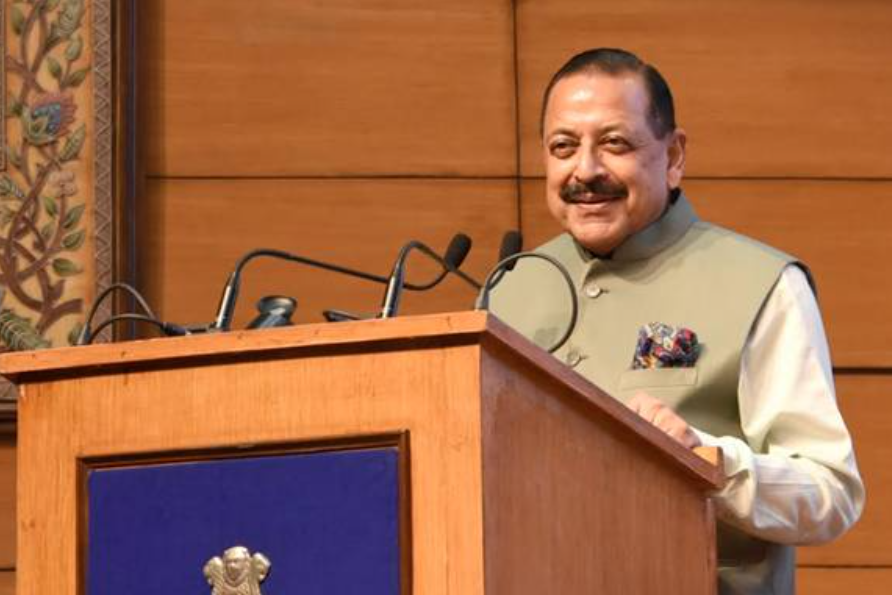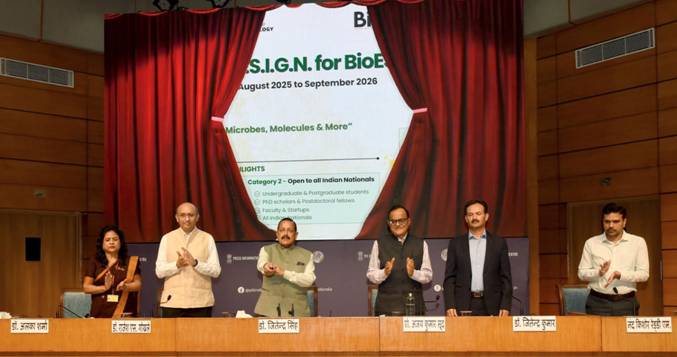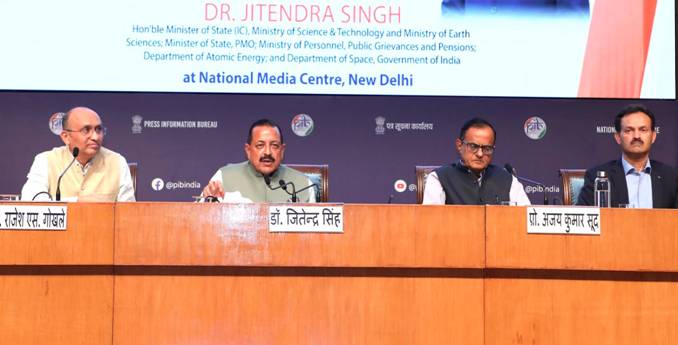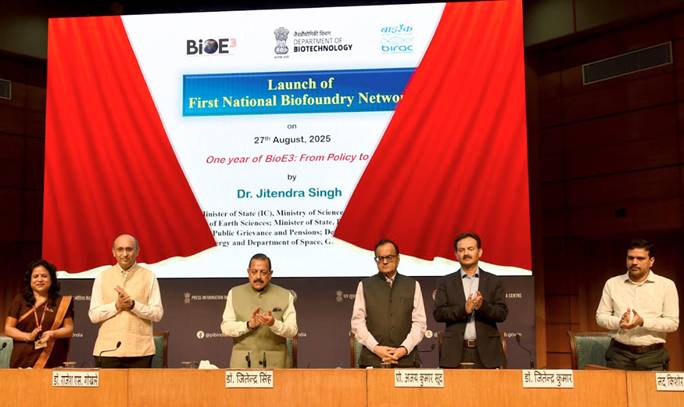Union Minister of Science and Technology Dr. Jitendra Singh on Wednesday said that India’s bioeconomy is projected to reach $300 billion by 2030, marking a sharp rise from $10 billion in 2014 and $165.7 billion in 2024.
The Minister was speaking at an event marking one year of the BioE3 Policy (Biotechnology for Economy, Environment and Employment), where he launched two major initiatives – the BioE3 Challenge for Youth and the National Biofoundry Network.
* BioE3 Challenge for Youth is a nationwide competition inviting students, researchers, startups and innovators to design safe and sustainable biotechnology solutions in health, agriculture, environment and industry. Starting October 2025, ten winning entries each month will receive ₹1 lakh, with 100 innovators eligible for funding of up to ₹25 lakh through Biotechnology Industry Research Assistance Council (BIRAC). Selected projects will gain incubation support at Biotechnology Research and Innovation Council+ (BRIC+) institutions across India.
* National Biofoundry Network is a consortium of six institutions to scale up indigenous biomanufacturing, accelerate proof-of-concept solutions and create jobs in the sector.
Highlighting the sector’s rapid growth, Singh said India’s biotechnology industry has achieved significant milestones under the BioE3 framework in just one year. These include the inauguration of the country’s first Biomanufacturing Institute in Mohali, the establishment of bio-AI hubs and biofoundries, and the launch of over a dozen joint research calls in frontier areas such as cell and gene therapy, climate-smart agriculture, carbon capture and functional foods. The Department of Biotechnology (DBT) has already received more than 2,000 proposals under these initiatives.
The Minister also pointed to new collaborations such as the DBT- ndian Space Research Organisation (ISRO) MoU on space biotechnology, under which three DBT-backed experiments were conducted on the International Space Station by Group Captain Subhanshu Shukla earlier this year. At the state level, DBT has partnered with Assam to establish a BioE3 Cell, while Indian missions in 52 countries have contributed inputs for advancing the policy globally.
Singh said the government aims to make biotechnology a pillar of India’s economic growth, with applications spanning agriculture, healthcare, energy, and environmental sustainability. He urged youth to actively participate in the BioE3 Challenge to shape India’s journey towards a sustainable and self-reliant bioeconomy.
Prof. Ajay Kumar Sood, Principal Scientific Adviser to the Government of India, noted that biotechnology today converges with fields like engineering, space science and artificial intelligence, opening “new and meaningful career avenues for India’s youth.” He stressed that the BioE3 Policy will accelerate research, create jobs, and support India’s vision of an Atmanirbhar Bharat.
The event also featured addresses by DBT Senior Adviser Dr. Alka Sharma and BIRAC Managing Director Dr. Jitendra Kumar, who outlined the future roadmap for BioE3.

















